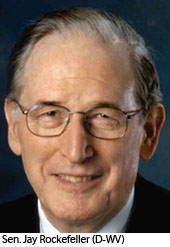Two memos sent by the White House authorizing the use of torture in CIA interrogations firmly tie the Bush administration to the controversial techniques used on detainees and investigated by the Justice Department, the Washington Post reports.
The White House's written approval of the CIA interrogation methods were provided at the request of then CIA Director George Tenet, who was seeking "top cover," should the administration try to distance itself from the decisions later.
One memo, provided in 2003 approved the methods later used in prisons like Abu Ghraib. When the scandal over that prison erupted, Tenet requested a second letter from the White House which was provided in July 2004.
The memos are the latest in recent admissions from the Bush administration on their role in authorizing and shaping CIA interrogation techniques -- charges they denied for years. In late September, Condoleezza Rice admitted White House officials discussed using torture against detainees.
From the Washington Post:
Tenet first pressed the White House for written approval in June 2003, during a meeting with members of the National Security Council, including Rice, the officials said. Days later, he got what he wanted: a brief memo conveying the administration's approval for the CIA's interrogation methods, the officials said.
Administration officials confirmed the existence of the memos, but neither they nor former intelligence officers would describe their contents in detail because they remain classified. The sources all spoke on the condition of anonymity because they were not cleared to discuss the events.
The second request from Tenet, in June 2004, reflected growing worries among agency officials who had just witnessed the public outcry over the Abu Ghraib scandal. Officials who held senior posts at the time also spoke of deteriorating relations between the CIA and the White House over the war in Iraq -- a rift that prompted some to believe that the agency needed even more explicit proof of the administration's support.












 White House Endorsed Torture in Memos to CIA
White House Endorsed Torture in Memos to CIA Condi Admits White House Role in CIA Interrogation Talks
Condi Admits White House Role in CIA Interrogation Talks Today's Must Read
Today's Must Read


